When you study African & African Diaspora Studies, you study the world!
We are always happy to hear from alumni. Please let us know how you are doing and how you are using your African & African Diaspora Studies (AADS) or the former Africology degree. Alumni can add or update their information by sending an email to african-diaspora-studies@uwm.edu
African & African Diaspora Studies Alumni: Where are they now?
UWM graduates with an AADS degree work in a broad spectrum of careers, including health services, education, journalism, social work, politics, law, business, the non-profit sector, trade, the arts, and government agencies. Below are selected undergraduate alumni profiles to illustrate the many things you can do with an AADS degree.
Alumni Interviews
Watch interviews of alumni about their experience in the Department of African and African Diaspora Studies (formerly the Department of Africology) at UW-Milwaukee.
Elijah Nicks, African & African Diaspora Studies minor (2019)
Geraud Blanks, Africology minor (2014)
Rachael Harris, African & African Diaspora Studies minor (2018)
Teonna Cooksey, African & African Diaspora Studies minor (2019)
Racquel D. Ward, Africology major (1995)
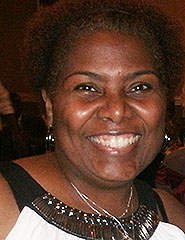
What are you doing these days? What have you been doing since graduating from UWM? What I am doing these days is being a Clinical Coordinator for Carolinas Healthcare System which is one of the biggest hospital systems in the Southeast. After graduating from UWM I pursued a degree in social work and hold a MSW from Wayne State University. With my MSW I have worked in a variety of settings: Detroit Police Department Rape Crisis Unit, a state program Pathways as a clinician in a women’s substance abuse program, Lead worker in a Women’s substance abuse residential program and my current position as Women’s substance abuse counselor and clinical coordinator. I am also a field instructor for the Dept. of Social Work at University of North Carolina-Charlotte and won BSW field instructor of the year for the 2011-2012 school year.
How has your Africology major or minor served you/helped you (in your career, your life, etc.)? How has my Africology major helped me in my career and/or life? Wow, tremendously. It has helped me to understand who I am and to be a proud African American woman. It has also helped me to educate clinicians, clients and students about African American culture. The two boards that guide my practice Social Work and Substance Abuse Professional Practice Board both value diversity so my degree helps me to meet people where they are.
What would you say to students considering an Africology major or minor?
What I would say to students pursuing this major or minor is to have an open mind. Be receptive to professors and information disseminated. Educate yourself further by going to cultural events, exhibits and reading outside literature. Also, to value this opportunity to receive wisdom from people who have studied and researched information relevant to a population that helped to shape this nation.
Anika Jones, Africology major (1996)
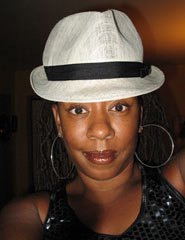
What are you doing these days? What have you been doing since graduating from UWM? I am in graduate school finishing up my PhD in Anthropology. I just recently passed my proposal hearing and finally I am in the field. I intend to spend a year to conduct ethnographic research in the field and then hopefully a year to write up my dissertation and then finally DEFEND! My goal is to get a post-doctorate fellowship upon graduation and then hopefully an appointment to a tenure track professor position.
How has your Africology major or minor served you/helped you (in your career, your life, etc.?) Many many many years ago for my BA, I had met the requirements for a degree in Sociology and I stayed an extra year to double major with a degree in Africology. At that time of my life African and African American History was a sort of “rites of passage” in my developing identity. Personally Africology is the discipline that taught me how to read “against the grain.” And this has been a very valuable tool in my graduate school studies. Also, I am a strong supporter of diversity education and again Africology is my foundation. So when I teach courses, in my opinion that do not present a very diverse representation of the discipline, I make it my duty to include diversity in my lectures.
What would you say to students considering an Africology major or minor? Africology can branch off in so many directions: education, criminal justice, social sciences, marketing, and international studies—just to name a few. It definitely is a strong foundation for anyone who wants to teach at the collegiate level and/or diversity trainers for corporations.
Is there anything else you would like to add? I am always encouraging young people to seize all opportunities that are available to them. Don’t close any doors to success. Even if you want to be the next big rapper or sports star—still go to school! Don’t close any avenues to success!
Bryan G. Pfeifer, Africology minor (2003)
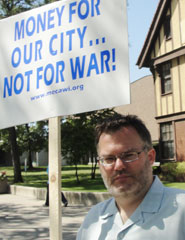
What are you doing these days? What have you been doing since graduating from UWM? I am presently living in Topeka, Kansas working as a union organizer for a union representing 18,000 public sector workers statewide.
Upon graduating from UWM, I successfully completed an M.S. in [Union] Labor Studies at the University of Massachusetts Amherst. While at UMass Amherst, inspired by my experience in the UWM Africology Department, I completed two courses in the African Studies Department there.
Upon graduating from UMass Amherst, I spent some time in Boston and briefly returned to Wisconsin working various occupations before departing for Detroit, Michigan where I worked as a union organizer helping to win a first-ever union contract for part-time faculty in the history of Wayne State University.
After Detroit I, returned to Wisconsin to assist in the people’s occupation of the state capitol in Madison and many of the progressive activities thereafter. During this time I helped to form the independent organization the Wisconsin Bail Out The People Movement (wibailoutpeople.org.)
Having obtained my BA in Journalism and Mass Communication degree at UWM, I’m also a freelance (Photo) Journalist and a Contributing Editor for the newspaper Workers World (www.workers.org). My articles and photos have been published or republished in print, web and other social media publications throughout the United States and in numerous other nations.
How has your Africology major or minor served you/helped you (in your career, your life, etc.?) My time spent in the Africology Department is absolutely indispensable in my daily life since the first class I took in the department: “Blacks and The Media.”
Just some of critical lessons I learned in the Africology Department include the science of dialectical and historical materialism, the impacts of chattel slavery from its inception to the present day and the strength and contributions of African people on the continent and the diaspora. Having being introduced to esteemed scholars in the Africology Department along with others such as Dr. W.E.B. DuBois, Dr. Huey Newton, Dr. Barbara Smith, Dr. Alice Walker, Dr. Angela Davis, Dr. Kwame Nkrumah, Dr. Walter Rodney and many others through reading material, my entire world outlook was transformed in terms of understanding the central role of Africa and those of African descent both on the continent and on the world stage historically and in the present day.
Megan Feifer, Africology minor (2006)
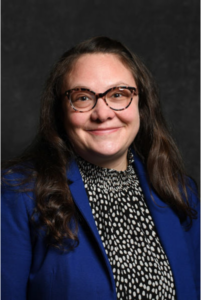
What are you doing these days? What have you been doing since graduating from UWM? I took on jobs at the Women’s Resource Center and, later, Sociocultural Programming. During my time at the WRC, I played a central role in bringing bell hooks to campus and had the once-in-a-lifetime chance to introduce her in front of a large audience. I can still remember the crack in my voice and my sweaty palms while at the podium, as well as the deeper understanding that the experience would be one of the most definitive moments of my life. bell hooks’s work continues to shape how I think about myself and my place in the world, informing my scholarship and pedagogy while framing how I engage in social justice.
When I saw the position advertised for a Resident-Teacher Scholar at the bell hooks center at Berea College, I knew it was a dream job and a long shot; I applied. As I filled out the application, imposter syndrome reared its head- the feeling and deep insecurity of “not being enough” that elides with being from a positionality like my own. I found myself questioning my abilities, fit, and education at public universities instead of ivy league institutions. I chose to cite the experience of bringing bell hooks to campus in my cover letter. Reflecting upon that fortuitous introduction, I started connecting its relationship to my learning and growth trajectory. I recognized the role each faculty and staff member played in guiding me along the way. I reminded myself that I’d been studying and applying bell hooks’s work for almost twenty years in non-profit organizations and in K-12 and secondary education settings across the United States. I submitted the application. During the interview process, I thanked the committee for considering me. I shared that I felt simply honored to be considered for such an exciting opportunity. I will never know if my students at Berea College fully understand the sincerity with which I shared how excited I was to be there on the first day of class, but I am so very grateful for the chance, journey, and all of the folks who guided me along the way.
How has your Africology major or minor served you/helped you (in your career, your life, etc.?) My time at the University of Wisconsin-Milwaukee culminated in two degrees and a wealth of community, critical knowledge, and self-growth. On transfer, I came to UWM as a working poor first-generation college student. At that time, I was unaware of the theories used to describe my positionality, but I had ample experiential understanding. Through coursework in Africology, English, and Women’s and Gender Studies, my critical consciousness grew. I was a most engaged listener in Dr. Sangari’s classes while discussing colonization in its many forms; I learned feminist theory from Dr. Mansson-McGinty and took my first course on women’s literature with Dr. Kennedy. I studied Octavia Butler’s work with Dr. Grayson well before the arrival of Afro-futurism as praxis and theory in higher education classrooms. I learned firsthand about care and community from Dr. Buley-Meissner, and I grew significantly as a writer under the tutelage of Dr. Banerjee. Finally, I learned to challenge white skin privilege in conversation with Dr. Bellegarde-Smith and Dr. Jay.
James Sokolowski, Africology major (2007)
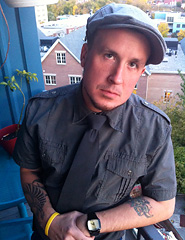
What are you doing these days? What have you been doing since graduating from UWM? I am currently working for MPS with GEAR UP (Gaining Early Awareness and Readiness for Undergraduate Programs). We are working with a cohort of 7th and 8th graders that we will follow through high school and into college. Previously, I spent 3 years working for the Running Rebels Community Organization as a Site Supervisor for the Milwaukee Violence Free Zone program at Washington HS. While there I was a mentor/advisor for the top 10% of most “at-risk” youth in the schools.
After graduating from UWM, I went on to complete a Master’s degree in Sociology at UWM as well. I have since been published as a first author and co-author in two education journals as I spent a lot of time during my undergrad and graduate tenure doing research in the field of urban education.
How has your Africology major or minor served you/helped you (in your career, your life, etc.)? I believe that first and foremost my studies in Africology expanded my knowledge of the experiences, history, and struggles of Original/African/Black peoples throughout the world. It demanded a honing of a critical lens/framework in which to view the world. It also gave me the opportunity to study and truly benefit from a study abroad trip in Ghana and an internship with the Wisconsin Black Historical Society Museum. There were so many rich and wonderful courses and professors that really encouraged and taught a methodology of rigorous study and critical awareness. Finally, it provided an opportunity to develop some very great relationships with peers and professors that still exist today.
What would you say to students considering an Africology major or minor? For those considering a major/minor in Africology, I would encourage them to do so and to keep an honest and introspective heart and mind. There are many opportunities to explore worldviews and perspectives that are not popular, nor widely disseminated, throughout the world we live. However, they are very important and the Africology department, in my opinion fills an educational void of history, social science, worldviews, and experiences that are not explored and often not even recognized throughout other schools and departments. It is a very wonderful and unique department of professors that do not bite their tongues and speak truth to power and demand that their students begin to discuss and challenge their beliefs, views, and opinions in an academic discourse.
Hermoine Bell-Henderson, Africology major (2004)
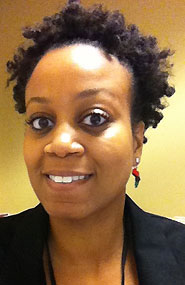
What are you doing these days? What have you been doing since graduating from UWM? Since graduating from UWM in 2004 with a BA in Africology, I have gone on to complete my MLIS (Masters of Library and Information Studies) from UWM in 2006. I’ve stayed busy in various positions with the Milwaukee Public Library (MPL) and currently, I am a Library Branch Manager at the Center Street Library. I’ve kept in contact with some of my Africology professors and have personally and professionally collaborated with them on projects and events such as Black History Month, Center Street Library’s 80th Anniversary Celebration in 2008, and the annual GarveyFest Celebration sponsored by Africans on the Move. In my personal life, I’m a wife and a new mother.
How has your Africology major or minor served you in your life and/or career? My major in Africology has served me well over the years in my career and life. I work at a branch library that serves a predominately African American community. I feel as though I am able to share my knowledge through interactions with patrons and through cultural programming opportunities. I love books (hence the career choice) and I’ve kept many of the textbooks, booklists, and other resources that I used as an Africology student. I still refer to some of the information and sometimes share information with library patrons as need be. Overall, Africology prepares you for life way beyond the major or minor. I’ve learned so much that I never knew about my history, which in turn shaped me into who I am today. I am more aware of myself and what’s happening in society.
What would you say to students considering an Africology major or minor? To students who are considering an Africology major or minor, I would recommend that they take at least one class and/or stop by the Africology Department to speak with the Africology staff in order to find out more information. I was hooked from the Black Reality class with Dr. William Rogers!
Is there anything else you would like to add? The Africology Department has some of the best professors at UWM! They are down to earth, show you a whole new reality, and promote critical thinking. Also, I would like to encourage students to get involved with the Africology Club and to also consider pursuing the Ph.D in Africology. Lastly, I still aspire to go to Africa one day to see all of the places that Dr. Ahmed Mbalia and Dr. Doreatha Mbalia have shared with me.
Brian Averill, Africology minor (2009)
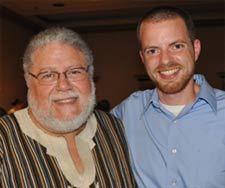
What are you doing these days? What have you been doing since graduating from UWM? I graduated from UW-Milwaukee in 2009. After the earthquake of January 2010, I spent time doing disaster relief work in Haiti. Upon my return later that year, I began my current job as the Executive Assistant at a small Washington D.C.-based non-profit organization called Roots of Development. Roots of Development works with a community association in rural Haiti. We help our partners gain access to resources to manage their own community development. In my role, I am responsible for fundraising, grant writing, communications, and numerous other activities.
Since the beginning of 2012, I have also served on the Board of the Haitian Studies Association (HSA). I currently sit on four committees, chairing two of them. During my brief tenure on the Board, I have helped propose, coordinate, and implement a new fund to completely sponsor Haiti-Based Scholars’ attendance at HSA’s annual conference.
I am currently applying to graduate school to continue my career in international development.
How has your Africology major or minor served you in your life and/or career? My Africology minor not only helped me understand many complexities of race, but also how race intersects with gender, sexual orientation, religion, and class. Through class assignments and discussions, I developed a high level of understanding and comfort around topics that are often taboo in American society, but of great importance.
Africology courses often served as a corrective to my earlier education. As a child, I idolized Christopher Columbus. As a student at UWM, I learned exactly why the story of Christopher Columbus and European exploration held few qualities worth idolizing. The story of Columbus, among others, taught me how important it is to account for different perspectives.
In a society that is often fractured by (mis)understandings of race, an education incorporating Africology courses can only help a student navigate their future relationships, business endeavors, and life experiences. I imagine that life without an examination of the differences that make us human would lead to a rather bland existence. A focus on Africology helped me learn my history as an American, a white man, a descendant of Europeans, and as a human.
What would you say to students considering an Africology major or minor?
Africology offers quantitative and qualitative classes, fulfilling many general educational requirements while covering fascinating local, national, and global topics. If you’re attending a university to have your assumptions challenged, gain new skills, and learn about new, fascinating topics, give Africology a shot.
Maxine Webb, Africology minor (2010)
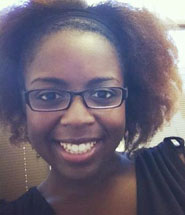
What are you doing these days? What have you been doing since graduating from UWM? After graduating from UWM, I committed to a year of service with City Year Little Rock/North Little Rock. I was able to perform literacy interventions to 5th grade students who were 2-3 grade levels behind in their reading. I also planned impactful service projects throughout the city, such as building community gardens, revamping a low-funded high school or hosting a city-wide high school conference to instill an ethic of “service” in young people. I recently accepted a position with the American Lung Association as a Development Manager. This position is fulfilling because I get to educate people on lung health disparities, especially in the African American community. Many people don’t know that more African Americans are diagnosed and die from Lung Cancer than any other group in this country. To support our programs, I plan and execute fundraising events and manage volunteers throughout the state.
How has your Africology major or minor served you in your life and/or career? My minor in Africology is WAY more than “just” a minor. When I speak with people about social issues and things that are happening around the world and in our own communities, I refer to what I learned in Africology at UWM. These courses have influenced my outlook on life tremendously, and what now seems obvious to me, I find myself having to explain to others. During my year of service in the public schools here in Little Rock, I thought back to Dr. Winkler’s course, which helped me understand the institutional problems that exist in our country, which made it possible for 5th grade students at one school to read at a lower reading level than 5th grade students at another school. In my current position, I think back to what I learned in Dr. Mbalia’s course to explain why health disparities exist throughout the country.
What would you say to students considering an Africology major or minor? When deciding on a major or minor, it is important to choose one that will always be relevant. These are not courses you take if you’re looking for something easy; in EVERY Africology course, you will be challenged to ask tough questions of yourself and of your peers, but at the end of it, you will be a better person. In some ways, it was more of a journey for me because after 4 years at UWM I felt more aware, mature and prepared for life.
Is there anything else you would like to add? If I knew now what I knew then, I would have chosen Africology as a major instead of a minor.
Did you major or minor in Africology at UWM? Share your story with us! Email your answers to these questions and a photo of yourself to Dr. Winkler at winklere@uwm.edu.